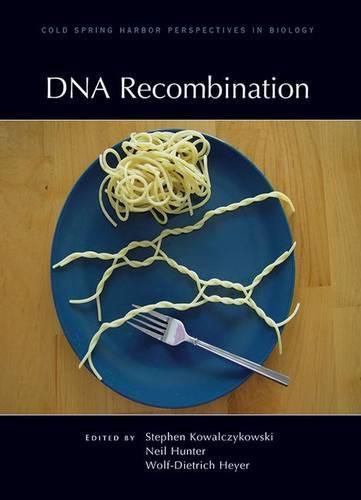Readings Newsletter
Become a Readings Member to make your shopping experience even easier.
Sign in or sign up for free!
You’re not far away from qualifying for FREE standard shipping within Australia
You’ve qualified for FREE standard shipping within Australia
The cart is loading…






Homologous recombination involves the precise exchange of similar or identical nucleic acid sequences between two DNA molecules. This process directs the repair of many DNA lesions in somatic cells and generates genetic variation in sperm and egg cells during meiosis. It is a nearly universal biological process that is conserved from phage to humans. Written and edited by experts in the field, this collection from Cold Spring Harbor Perspectives in Biology covers all aspects of recombinational DNA repair, meiotic recombination, and the regulation of these processes. The contributors examine the dozens of proteins that are involved in recombinational repair and the various pathways in which they are employed (e.g., gene conversion or break-induced replication). They also discuss how these proteins and pathways are strictly regulated to avoid genomic instability, which can lead to diseases such as cancer, and how they are coordinated with other nuclear processes (e.g., transcription and DNA replication).
Meiotic recombination, the characteristics that distinguish it from recombinational repair, and effects of its dysregulation (e.g., aneuploidy) are also covered in depth. This volume is an indispensable reference for biochemists, molecular biologists, and cell biologists who want to understand how DNA recombination maintains genomic integrity in individual organisms and across generations.
$9.00 standard shipping within Australia
FREE standard shipping within Australia for orders over $100.00
Express & International shipping calculated at checkout
Homologous recombination involves the precise exchange of similar or identical nucleic acid sequences between two DNA molecules. This process directs the repair of many DNA lesions in somatic cells and generates genetic variation in sperm and egg cells during meiosis. It is a nearly universal biological process that is conserved from phage to humans. Written and edited by experts in the field, this collection from Cold Spring Harbor Perspectives in Biology covers all aspects of recombinational DNA repair, meiotic recombination, and the regulation of these processes. The contributors examine the dozens of proteins that are involved in recombinational repair and the various pathways in which they are employed (e.g., gene conversion or break-induced replication). They also discuss how these proteins and pathways are strictly regulated to avoid genomic instability, which can lead to diseases such as cancer, and how they are coordinated with other nuclear processes (e.g., transcription and DNA replication).
Meiotic recombination, the characteristics that distinguish it from recombinational repair, and effects of its dysregulation (e.g., aneuploidy) are also covered in depth. This volume is an indispensable reference for biochemists, molecular biologists, and cell biologists who want to understand how DNA recombination maintains genomic integrity in individual organisms and across generations.